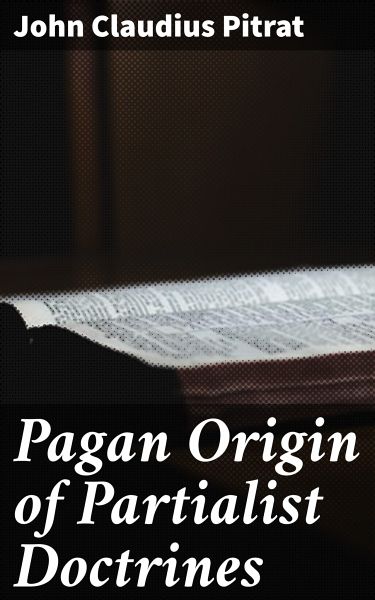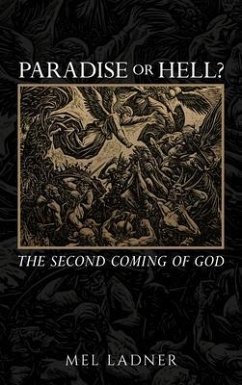
Pagan Origin of Partialist Doctrines (eBook, ePUB)
Enriched edition. Uncovering Ancient Pagan Roots in Modern Beliefs
Kommentar: Kirk, Rachel / Redaktion: Good Press
Sofort per Download lieferbar
0,49 €
inkl. MwSt.
Weitere Ausgaben:

PAYBACK Punkte
0 °P sammeln!
In "Pagan Origin of Partialist Doctrines," John Claudius Pitrat embarks on a rigorous examination of the historical and philosophical underpinnings of various theological doctrines, tracing their roots to ancient pagan beliefs. The book's literary style is characterized by meticulous scholarship, blending narrative exposition with critical analysis. Pitrat scrutinizes the evolution of religious thought, challenging the widely accepted notions of absolute orthodoxy in Christianity, while illuminating the often-overlooked syncretism that occurs at the intersection of paganism and emerging monoth...
In "Pagan Origin of Partialist Doctrines," John Claudius Pitrat embarks on a rigorous examination of the historical and philosophical underpinnings of various theological doctrines, tracing their roots to ancient pagan beliefs. The book's literary style is characterized by meticulous scholarship, blending narrative exposition with critical analysis. Pitrat scrutinizes the evolution of religious thought, challenging the widely accepted notions of absolute orthodoxy in Christianity, while illuminating the often-overlooked syncretism that occurs at the intersection of paganism and emerging monotheistic practices. John Claudius Pitrat, a prominent thinker of the 19th century, was deeply influenced by the evolving debates surrounding faith, reason, and tradition. His extensive studies in philosophy, theology, and history shed light on the syncretic nature of early Christian doctrine, reflecting his personal quest for intellectual clarity in a rapidly changing world. This pursuit of truth in a complex religious landscape propelled him to confront entrenched beliefs and propose a more nuanced understanding of faith influenced by earlier traditions. "Pagan Origin of Partialist Doctrines" is a thought-provoking read for those intrigued by the intricate relationships between ancient religions and modern faiths. It offers an invaluable contribution to theological studies and encourages readers to reconsider familiar tenets, fostering a dialogue that extends beyond the surface of religious ideology. In this enriched edition, we have carefully created added value for your reading experience: - Hand-picked Memorable Quotes shine a spotlight on moments of literary brilliance. - Interactive footnotes clarify unusual references, historical allusions, and archaic phrases for an effortless, more informed read.
Dieser Download kann aus rechtlichen Gründen nur mit Rechnungsadresse in A, B, BG, CY, CZ, D, DK, EW, E, FIN, F, GR, H, IRL, I, LT, L, LR, M, NL, PL, P, R, S, SLO, SK ausgeliefert werden.













